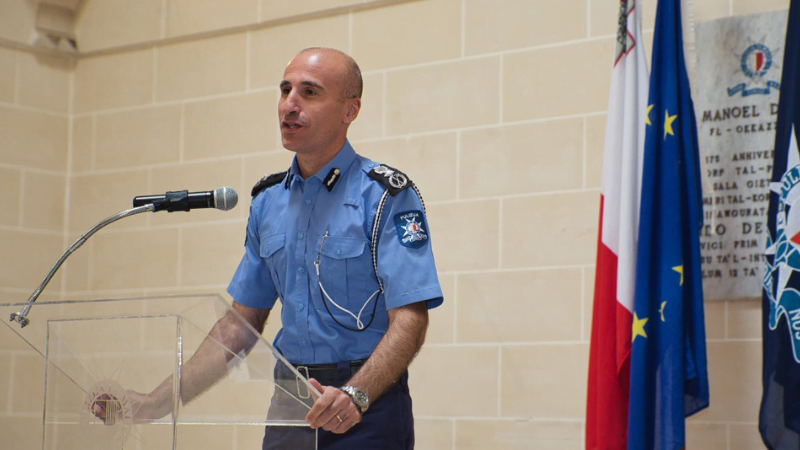On 1 March, the European Public Prosecutor’s Office (EPPO) published its annual report, which, among other statistics and information, notes that Malta has yet to commence prosecution in the 12 cases the EPPO is investigating.
Given the reputation for inaction that the country’s primary law enforcement entity – the police force – has amassed, the report’s statistics might be unsurprising to many.
Indeed, when our law enforcement people participate in significant cross-border investigations, the public is informed through statements by international networks — not by our local sleuths.
For instance, it was through the EPPO that the public learned how an organisation suspected of massive VAT fraud amounting to €195 million was identified, and that searches had been conducted and arrests made in 17 countries across Europe, including Malta.
In July last year, it was the EPPO which informed the public of the arrest of five customs officers, who were among eight people arrested in Malta following an investigation into customs fraud, even though the investigation had been conducted with the collaboration of the Malta police and the Financial Crimes Investigation Department (FCID), Malta’s Customs Enforcement Section and Malta’s Asset Recovery Bureau.
These are far from the only examples. Apart from press releases by international bodies, such as the EPPO, Europol and Eurojust, we often learn about law enforcement activities in Malta or involving Malta via international media or law enforcement agencies in other countries, such as Italy’s Guardia di Finanza.
Shouldn’t the public be informed?
Spokespersons for Malta’s police force frequently reply that Article 87 of the Police Act prohibits police officers from disclosing “any details to the press or the broadcasting media regarding the identity of any person arrested on a reasonable suspicion that he committed an offence.”
This provision of law further states that “the police shall not issue to the press, either directly or indirectly, any information about the identity of the person who is about to be charged before the courts or of any investigation”.
This is why we’re unlikely to get an update on whether the police ever opened an independent investigation into the “fraudulent” Vitals hospitals deal after the Court of Appeal found “collusion” between government and private entities to the public’s detriment.
It’s also why we have yet to learn of any developments, if there have been any, in connection with Agriculture Minister Anton Refalo’s possession of a legally protected British-era milestone – over the past year, questions were met with silence from Refalo himself, from Police Commissioner Angelo Gafa, and the Superintendant of Cultural Heritage.
When the former Commissioner for Standards in Public Life, George Hyzler, concluded his investigation into a €15,000 contract that the then-Education Minister Justyne Caruana had given to her partner Daniel Bogdanovic, he recommended a criminal investigation. Still, we don’t know what steps, if any, were ever taken to address this suggestion.
Legal experts contacted by The Shift note that while the police and, indeed, all public officers and persons in authority should act with caution when commenting publicly on alleged breaches of the law and possible or ongoing investigations so that suspects’ fundamental rights are not breached, or the investigations not hampered, this caution should not morph into starving the public of important information.
Article 87 is only intended to protect actual or possible suspects’ rights and the integrity of investigations. Still, it should not preclude the police from regularly updating the public on matters of public interest.
How do others do it?
In the UK (on which most of our laws are based), for example, the relationship between the police and the media is guided by the College of Policing’s Authorised Professional Practice (APP), which provides a framework for how the police engage with the media.
These guidelines cover a range of situations that may be encountered, from respecting a suspect’s right to privacy to high profile and sensitive investigations and media briefings.
Providing information in the public interest, helping to manage media needs in high profile cases, and ensuring accuracy in the reporting of ongoing complex cases are just some of the reasons listed for holding a press briefing.
The guidelines also mention that media briefings “may be considered at any point during the life of an investigation or police operation”.
The press briefings held by Police Commissioner Angelo Gafa are few and far between despite an endless list of scandals revealed by the press.
Malta’s police do have guidelines for the media. Research by The Shift found that Malta’s police Code of Ethics refers to the Force’s Media Relations Standard Operating Procedures (SOP-MER). The Shift contacted the police force’s media office for a copy but was told that the SOP-MER is an internal document.













This is Mafialand where Omerta is both practised and avidly encouraged using whatever crude tools they have in order to maintain the facade of Law and Order.
Undoubtably all things Justice and Prosecution are shrouded in deep secrecy as many of the trails lead to ministers and their cohorts and would in a real democracy see them incarcerated
Transparency exposes one’s nakedness. Lack of transparency guarantees privilege, impunity, lack of accountability, which here have become par for the course.
A culture of darkness
The police belong to the PL. The courts belong to the PL. This is common knowledge, even across the EU, yet nobody is doing anything about it. So they don’t care about the public ‘trust’. Why would they?
Does ANYBODY have any trust in the pictured MLP puppet?